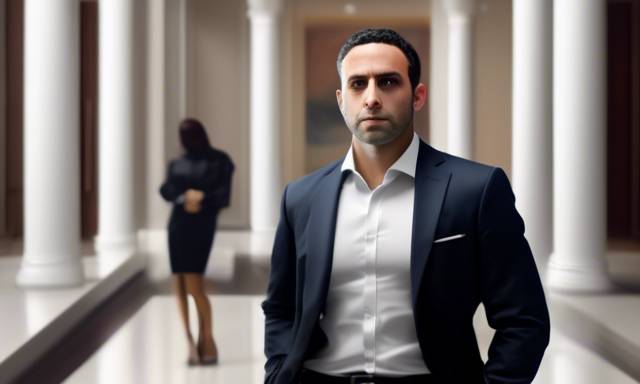Ryan Salame Seeks Extension on Prison Surrender Date 🕒
In recent developments surrounding the fallout from the tumultuous FTX collapse, former executive Ryan Salame has taken steps to delay his prison surrender date. His request stems from the need for ongoing medical treatment following an unfortunate incident that left him injured earlier this year.
Medical Concerns Prompt Request 🏥
As documented in a court filing on October 9 in the Southern District of New York, Salame’s attorneys have proposed that he be allowed to shift his prison report date from October 11 to December 7. This extension aims to provide him the necessary time to continue recovering from injuries he sustained on June 19, 2024, which his physician has deemed essential for his recuperation.
The former co-CEO of FTX Digital Markets suffered a significant injury after being attacked by a dog this past summer. Reports indicate that Salame experienced a “dog-bite injury to the face,” which necessitated urgent medical procedures and surgeries. Consequently, his original prison surrender date was postponed from August 29 to this month to accommodate his treatment needs.
Legal Turmoil for Bankman-Fried Associates ⚖️
Salame’s plea for additional time comes at a turbulent juncture, particularly following the indictment of his associate, Michelle Bond. She, once a candidate for congressional office, has faced charges related to campaign finance infractions. Salame had previously claimed that he reached an agreement with federal attorneys, suggesting they would halt their investigation into Bond if he accepted guilt for his own crimes.
When Bond was charged, Salame sought to retract his guilty plea, which elicited a stern response from Judge Lewis Kaplan. The judge expressed his frustration, indicating potential consequences for Salame due to his apparent attempts at deception.
Salame notably remained uncooperative with U.S. prosecutors during the highly publicized trial of Sam Bankman-Fried that took place in 2023. As the first associate of Bankman-Fried to face incarceration, Salame’s situation highlights the broader legal repercussions faced by those involved in the FTX operations.
Future for Other FTX Figures 🌐
As Salame prepares for his impending prison sentence, other key figures from the FTX saga are also navigating their legal consequences. Caroline Ellison, the former CEO of Alameda Research, has received a two-year prison sentence for her involvement in the extensive fraud scheme. She is scheduled to start serving her sentence on November 7, 2024.
Amid this backdrop, Sam Bankman-Fried himself is currently imprisoned at the Metropolitan Detention Center in New York, where he is serving a 25-year sentence for his role in orchestrating the fraud that engulfed FTX. Reports suggest ongoing complications and challenges for him as well.
Should Salame’s request for more time not be granted, he will commence a 7.5-year prison term at a federal correctional institution on Friday. Additionally, he faces financial penalties amounting to $11 million in fines and restitution, emphasizing the severe ramifications of his actions in the crypto marketplace.
Hot Take: Reflections on FTX and Its Fallout 🔥
The legal entanglements of former FTX executive Ryan Salame exemplify the lasting consequences stemming from the collapse of one of the most high-profile cryptocurrency exchanges in history. This year has been particularly illustrative of the precarious nature of the crypto landscape. As regulatory bodies tighten their scrutiny and legal actions unfold, the implications for former executives and associated individuals serve as a cautionary tale for the industry.
With continuing legal battles and various prison sentences being handed down, it becomes increasingly clear that those tied to FTX will face their day in court. The ripple effects of this collapse extend beyond individual cases, bringing critical attention to the need for robust regulations and accountability within the cryptocurrency space.
As stakeholders watch the outcomes for key figures like Salame and Bankman-Fried, it’s essential to reflect on the fundamental lessons about governance, transparency, and responsibility that must shape the future of cryptocurrency and financial technologies.





 By
By

 By
By
 By
By
 By
By
 By
By